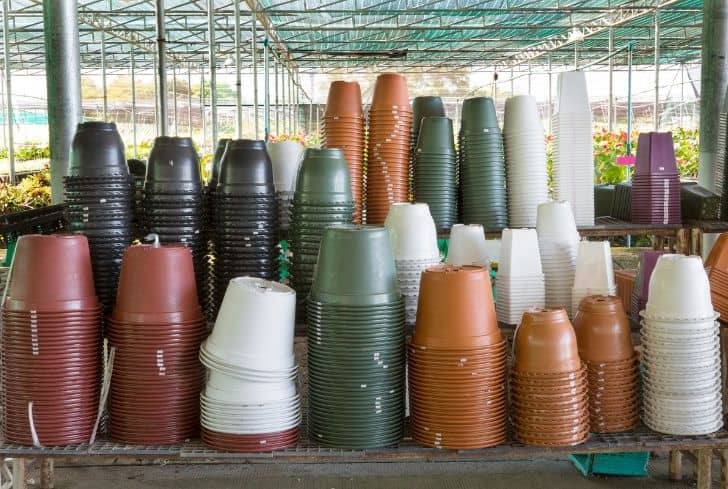The short answer is yes, plastic plant pots can be recycled. However, the process of recycling plant pots can be tricky due to their various shapes, sizes, and materials. Here are some tips on how to properly dispose of or recycle your plastic plant pots.

Most Local Authorities collect plastic plant pots in their curb-side recycling programs. However, it's important to check with your local authorities on the exact details as different regions and areas may have different recycling policies. You can find out more information online, by contacting your Local Authority, or looking at the recycling stickers on your bin.
One of the most significant challenges with recycling plant pots is the variety of types on the market. Some plastic plant pots are made from materials that cannot be recycled easily, leading to increased pollution and environmental harm. Most traditional plastic plant pots have a "recycling" symbol printed on their bottom, but many people are unsure what they can or cannot recycle. Therefore, it's important to classify the different types of pots before recycling them.
Black plastic nursery pots, for example, are notorious for not being easily recyclable. Recycling facilities are unable to detect black plastics as infrared sensors used in sorting machinery cannot detect the colour black, meaning they cannot be sorted by machines. Consequently, black plastics usually end up in landfills, leading to increased pollution and harm to the environment.
If you want to reduce your environmental footprint, here's what you can do with unwanted plastic pots:
● Reuse: If you have additional plants, you can reuse your old plastic plant pots. You can clean and disinfect them and use them again for similar plants. Alternatively, you can use the pots to grow a different type of plant.
● Donate: If you have far too many pots that you are unlikely to use, consider donating them to a local gardening club, community garden, or plant nursery.
● Sell: Sell your unwanted pots online or arrange a yard sale! People are always searching for affordable plastic plant pots.
● Recycle at specified facilities: Specified facilities for recycling are available in some areas. Check with your Local Authority to find out where you can drop off your plant pots to recycle instead of throwing them in your bin.
If you must dispose of your plastic plant pots in the recycling bin, here are some tips to help:
● Remove soil and plant matter: To help recycling facilities process your pots, clean your plastic plant pots by removing any soil buildup, labels or stickers, plant and organic matter, and any other debris.
● Flatten your pots: To save space, you can flatten the larger pots, which helps the recycling process and recycling machinery handle them more efficiently.
● Sort them by type: If you have multiple types of plant pots, sort them before you throw them in the recycling bin. Clearly mark your pile of pots with any non-recyclable and non-sortable plastics such as black plastic.
When we recycle plant pots, we reduce the number of plastics that end up in landfills, oceans, and it helps make a significant contribution to reducing global pollution.
In conclusion, recycle black plastic plant pots is essential, but many factors come into play when recycling them. Whether you reuse them, donate them, sell them, or recycle them, it's important to ensure that they are correctly classified and repurposed in creative ways. By taking these steps, we can protect our environment and make the world a greener place.